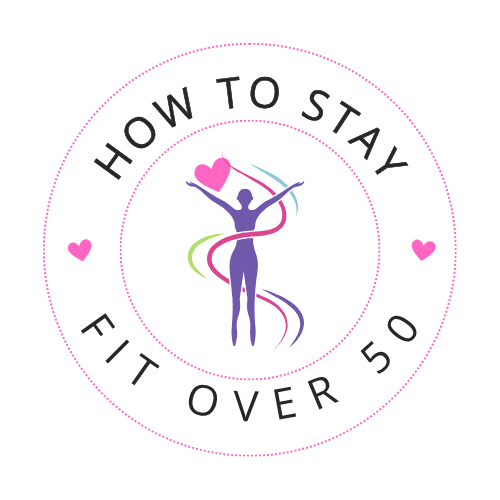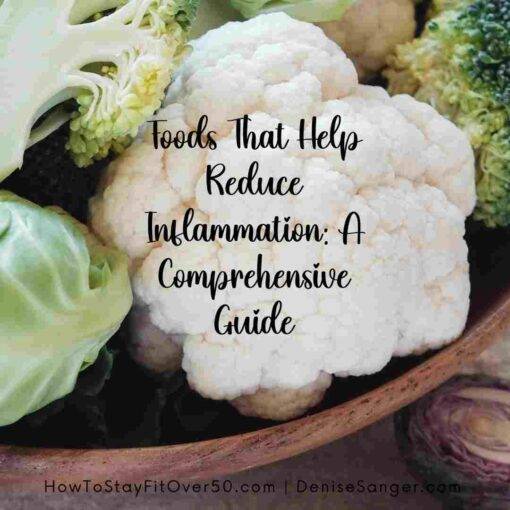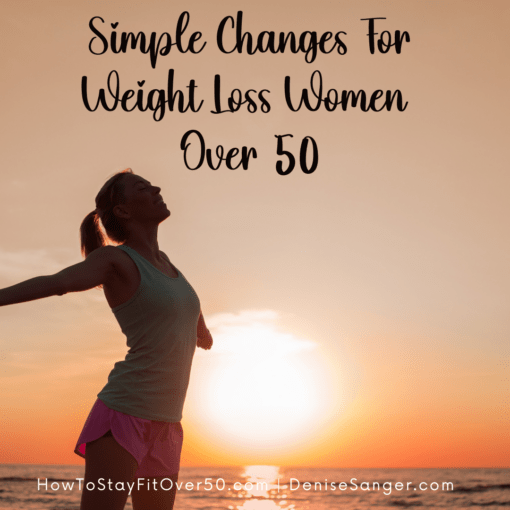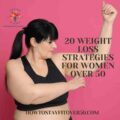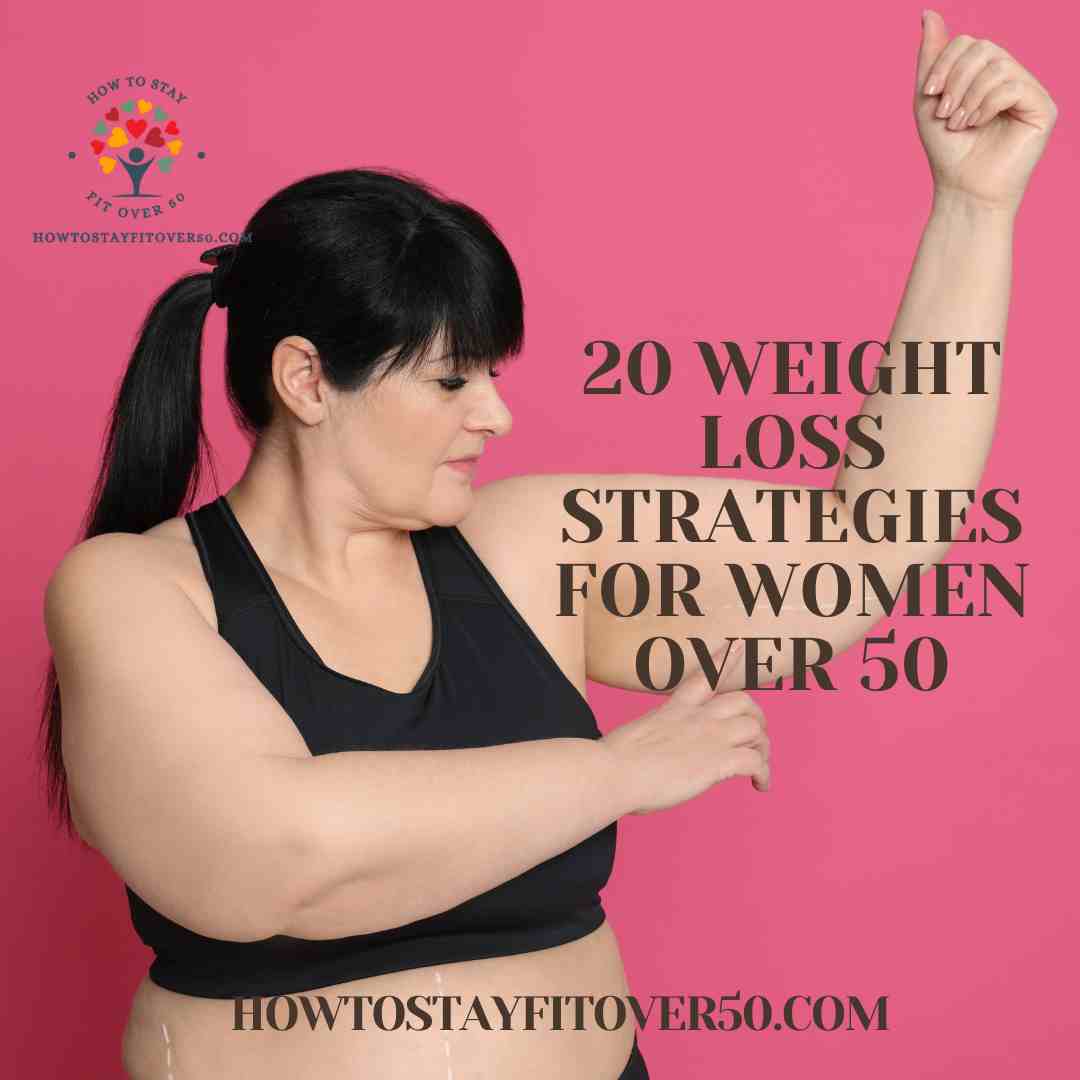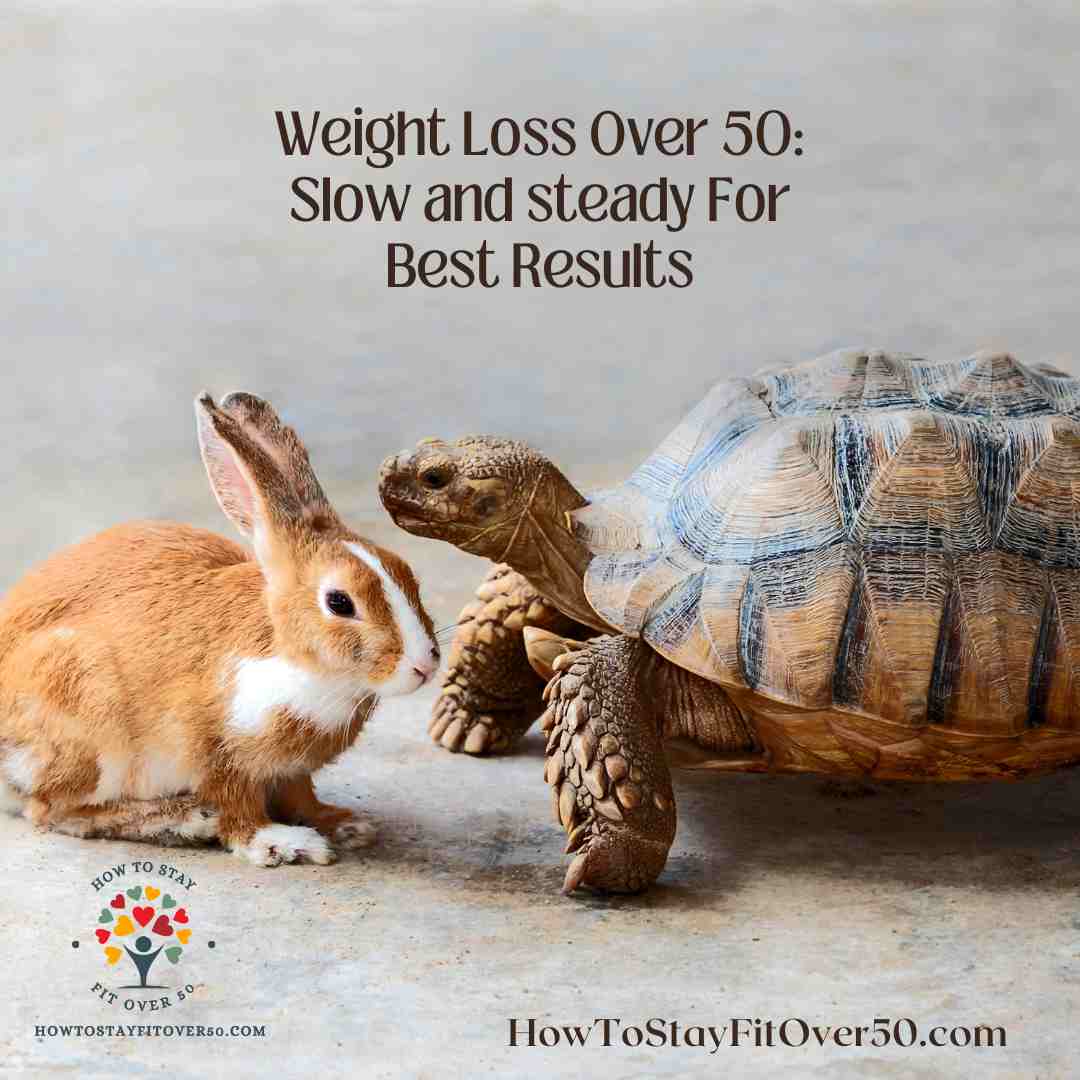We may earn money or products from the companies mentioned in this post.
Weight loss after 50? Is it possible? As I entered my 50s, I noticed that shedding those extra pounds became more challenging than ever before.
After 60? It became even more difficult. Is there a secret to weigh loss after 50 I don’t know about?
Despite trying out various diet plans and exercise routines, the scales didn’t seem to budge in my favor. I was determined though to find a solution to this issue, so I began researching weight loss after 50.
Upon conducting some research, I discovered that certain factors such as age-related hormonal changes and a slower metabolism tend to make it difficult to lose weight at this stage of life.
This doesn’t mean that it’s impossible to achieve our desired body goals. By making informed choices about nutrition and physical activity, we can successfully navigate the challenges presented by weight loss after 50.
In my quest to achieve a healthier lifestyle, I learned that it’s crucial to prioritize whole, nutrient-rich foods while limiting sugars and processed options.
Additionally, I incorporated strength training and cardio workouts into my routine to rebuild muscle mass and maintain a healthy heart. With persistence and commitment, plus a little help by visiting my doctor, I was able to lose and have also been able to keep the weight off.
Why Do We Gain Weight as We Age?
As I’ve gotten older, I noticed that my body started changing, and somehow, losing weight became more of a challenge. There are a few key reasons why we tend to gain weight as we age.
Firstly, our metabolism slows down. This means that my body burns calories at a slower rate than when I was younger, which can lead to weight gain if I don’t adjust my diet and exercise habits accordingly.
Muscle mass also decreases with age, and since muscles burn more calories than fat, having less muscle mass contributes to a slower metabolism as well.
Another factor to consider is hormonal changes. As we age, our hormone production changes, and this can affect our body’s ability to regulate weight. For women, one of the most significant hormonal changes occurs during menopause, which can lead to weight gain due to decreased estrogen levels and a shift in fat distribution.
Moreover, my lifestyle might have contributed to my weight gain as well. Long working hours, increased stress, and a more sedentary lifestyle are all common as we get older.
Yes, I am a fitness instructor, but I still spend a lot of time sitting and writing in my office. These factors can make it challenging to find the time and motivation to incorporate healthy habits into my daily life.
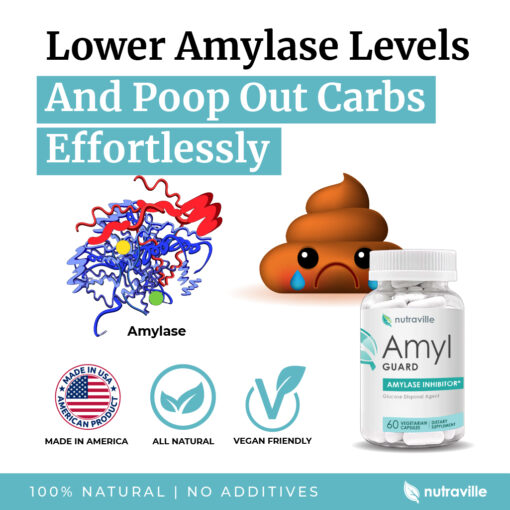
What Happens to a Woman’s Metabolism After Menopause or a Hysterectomy
I noticed that as I entered menopause, my metabolism seemed to slow down, making it more challenging to lose weight. This is not uncommon for women over 50, as hormonal changes can affect our bodies’ ability to burn calories efficiently.
During menopause, levels of estrogen begin to decline. This hormone plays a crucial role in regulating our metabolism. As estrogen diminishes, our bodies may start to store more fat, particularly in the abdominal area. Additionally, our muscle mass may decrease, further slowing down our metabolic rates.
A hysterectomy can also impact a woman’s metabolism. Like menopause, the surgical removal of the uterus often results in hormonal changes that can slow down metabolism. However, the extent of the impact may depend on the type of hysterectomy a woman has undergone.
The good news is that specific actions can be taken to boost metabolism after menopause or a hysterectomy:
- Exercise: Regular physical activity, particularly resistance training, can help increase and maintain muscle mass, improving metabolism.
- Diet: Eating a balanced diet rich in whole foods, such as fruits, vegetables, lean proteins, and whole grains, will provide the essential nutrients to support a healthy metabolism.
- Stay hydrated: Drinking adequate amounts of water is critical for proper metabolic function.
- Get enough sleep: Poor sleep quality can negatively affect metabolism, so ensure you get enough restful sleep.
Small Nutritional Changes to Boost Your Metabolism
As I got older, I found that losing weight after 50 was more challenging than I expected. But with a few small nutritional changes, I managed to give my metabolism the boost it needed. Here’s what worked for me:
1. Increasing protein intake: I made sure to include a good amount of protein in every meal. This not only helped me feel fuller, but also increased my metabolic rate, as protein requires more energy to digest than carbohydrates or fat. Some of my go-to protein sources included:
- Lean meats like chicken and turkey
- Fish such as salmon and tuna
- Legumes and beans
- Greek yogurt and cottage cheese
2. Drinking green tea: I swapped out my usual coffee for a cup or two of green tea each day. Green tea contains catechins, which are known to enhance metabolism and fat oxidation. Plus, it’s a great source of antioxidants!
3. Staying hydrated: I made a conscious effort to drink at least 64 ounces of water daily. Proper hydration helps with digestion and can even slightly increase metabolic rate.

4. Spicing up meals: I added metabolism-boosting spices like ginger, cayenne pepper, and cinnamon to my meals whenever possible. Not only did they add flavor, but they helped to create a slight thermogenic effect, raising my metabolism temporarily.
5. Emphasizing whole foods: I focused on eating whole, unprocessed foods, like fruits, vegetables, whole grains, and lean proteins. These foods are nutrient-dense and often require more energy to digest than processed alternatives.
By incorporating these small nutritional changes, I found that my metabolism began to slowly pick up, making weight loss just a little bit easier after 50.
Foods That May Boost Your Energy and Metabolism
As I’ve been exploring weight loss options after turning 50, I’ve discovered some foods that may help boost my energy and metabolism. The following are foods that I’ve found helpful in my journey:
Whole Grains: I’ve noticed that whole grains, such as whole wheat, brown rice, and quinoa, provide longer-lasting energy and help me feel fuller. This is thanks to their high fiber content, which requires more energy to digest, boosting metabolism.
Lean Protein: I’ve started including lean protein like chicken, turkey, and fish, in my diet as it helps repair and build muscle while keeping me full and satisfied. Additionally, protein also requires more energy to digest, contributing to an increased metabolism rate.
Green Tea: I’ve found that drinking green tea not only acts as a calming ritual but also helps support my metabolism. Green tea contains catechins, antioxidants that may increase calorie-burning and help with weight loss.
Citrus Fruits: I’ve learned that citrus fruits such as oranges, lemons, and grapefruits are high in vitamin C and help improve fat oxidation. These fruits also provide a natural energy boost that can help me stay active during the day.
Spicy Foods: I’ve noticed that adding spice to my meals with ingredients like chili pepper, cayenne pepper or jalapeño can help increase metabolism. Research shows that capsaicin, the compound that gives chilies their heat, can slightly increase thermogenesis—the process by which your body burns calories for energy.
In my experience, incorporating these foods into my daily meals has helped me stay energized, increase my metabolism, and ultimately, support my weight loss journey after 50.
It’s important to remember that results may vary, and it’s always a good idea to consult with a healthcare professional before making any major changes to your diet.
5 Daily Tips to Help You Slowly Lose and Keep Weight Off
Losing weight after 50 may seem daunting, but it’s not impossible! Based on my experience, I have found that implementing these five daily tips can help you slowly lose and keep weight off:
1. Stay hydrated: I cannot stress enough the importance of drinking plenty of water throughout the day. It helps me curb my appetite, stay energized, and maintain a healthy metabolism. I aim to drink at least 8 glasses of water a day to keep my body in top shape.

2. Keep it balanced: One of the most effective strategies for me is ensuring that I eat a balanced diet. This means including lean proteins, complex carbohydrates, healthy fats, and plenty of fruits and vegetables on my plate.
3. Reduce portion sizes: I’ve found that portion control is essential for losing weight after 50. Eating smaller, more frequent meals (around 5 a day) helps me avoid overeating and keeps my metabolism revved up.
4. Get moving: Exercise is my best friend when trying to lose weight or maintain it. I aim to do at least 150 minutes of moderate exercise (like brisk walking) or 75 minutes of vigorous exercise (like running) per week.
5. Don’t skip meals: It might be tempting to neglect meals in an effort to cut calories, but it always ends up backfiring. Eating balanced meals and snacks throughout the day helps to keep my hunger levels under control, allowing me to make better food choices.
These daily tips have helped me lose with help from the doctor. More important though? They have helped me so far keep weight off. Hope they help you too.
